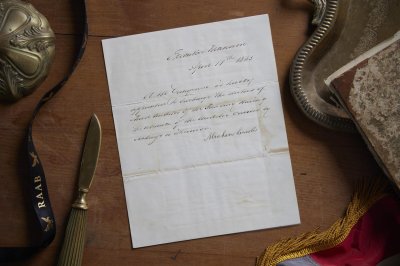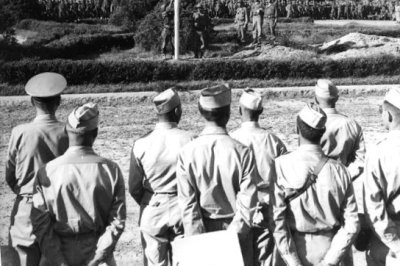Topic: Robert E. Lee
Robert Edward Lee (January 19, 1807 – October 12, 1870) was a career military officer who is best known for having commanded the Confederate Army of Northern Virginia in the American Civil War. The son of U.S. Revolutionary War hero Henry "Light Horse Harry" Lee III and a top graduate of West Point, Robert E. Lee distinguished himself as an exceptional officer and combat engineer in the United States Army for 32 years before resigning to join the Confederate cause. By the end of the American Civil War, he was commanding general of the Confederate army. He became a postwar icon of the South's "lost cause", and is still admired to this day.
In early 1861, President Abraham Lincoln invited Lee to take command of the entire Union Army. Lee declined because his home state of Virginia was, despite his wishes, seceding from the Union. When Virginia declared its secession from the Union in April 1861, Lee chose to follow his home state. Lee's eventual role in the newly established Confederacy was to serve as a senior military adviser to President Jefferson Davis. Lee soon emerged as the shrewdest battlefield tactician of the war, after he assumed command of the Confederate eastern army (soon christened "The Army of Northern Virginia") after the wounding of Joseph Johnston at the Battle of Seven Pines. His abilities as a tactician have been praised by many military historians. They were made evident in his many victories such as the Battle of Fredericksburg (1862), Battle of Chancellorsville (1863), Battle of the Wilderness (1864), Battle of Cold Harbor (1864), Seven Days Battles, and the Second Battle of Bull Run. His strategic vision was more doubtful—his invasions of the North in 1862 and 1863 were designed to help gain foreign recognition, seize supplies, take the pressure off his beloved Virginia, and mobilize antiwar elements in the North. After a defeat at Antietam in 1862 and disaster at Gettysburg in 1863, hopes for victory were dashed, and defeat for the South was almost certain. However, due to ineffectual pursuit by the commander of Union forces after both defeats, Lee escaped back to Virginia. His decision in 1863 to overrule his generals and invade the North, rather than help protect Vicksburg, proved a major strategic blunder and cost the Confederacy control of its western regions, according to critical historians such as Sears and Eicher. Nevertheless, there is no dispute that Lee's brilliant defensive maneuvers stopped the Union offenses one after another, as he defeated a series of Union commanders in Virginia.
In the spring of 1864, the new Union commander, Ulysses S. Grant, began a series of campaigns to wear down Lee's army. In the Overland Campaign of 1864 and the Siege of Petersburg in 1864–65, Lee inflicted heavy casualties on Grant's larger army, but was forced back into trenches; the Confederacy was unable to replace their losses or even provide adequate rations to the soldiers that did not desert. In the final months of the Civil War, as manpower drained away, Lee adopted a plan to arm slaves to fight on behalf of the Confederacy, but the decision came too late and the black soldiers were never used in combat. In early April 1865, Lee's depleted forces were overwhelmed at Petersburg; he abandoned Richmond and retreated west as Union forces encircled his army. Lee surrendered to Grant at Appomattox Court House on April 9, 1865, marking the end of Confederate hopes; the remaining armies soon capitulated. Lee rejected as folly the starting of a guerrilla campaign against the Yankees and called for reconciliation between the North and South.
It uses material from the Wikipedia article "Robert E. Lee."














